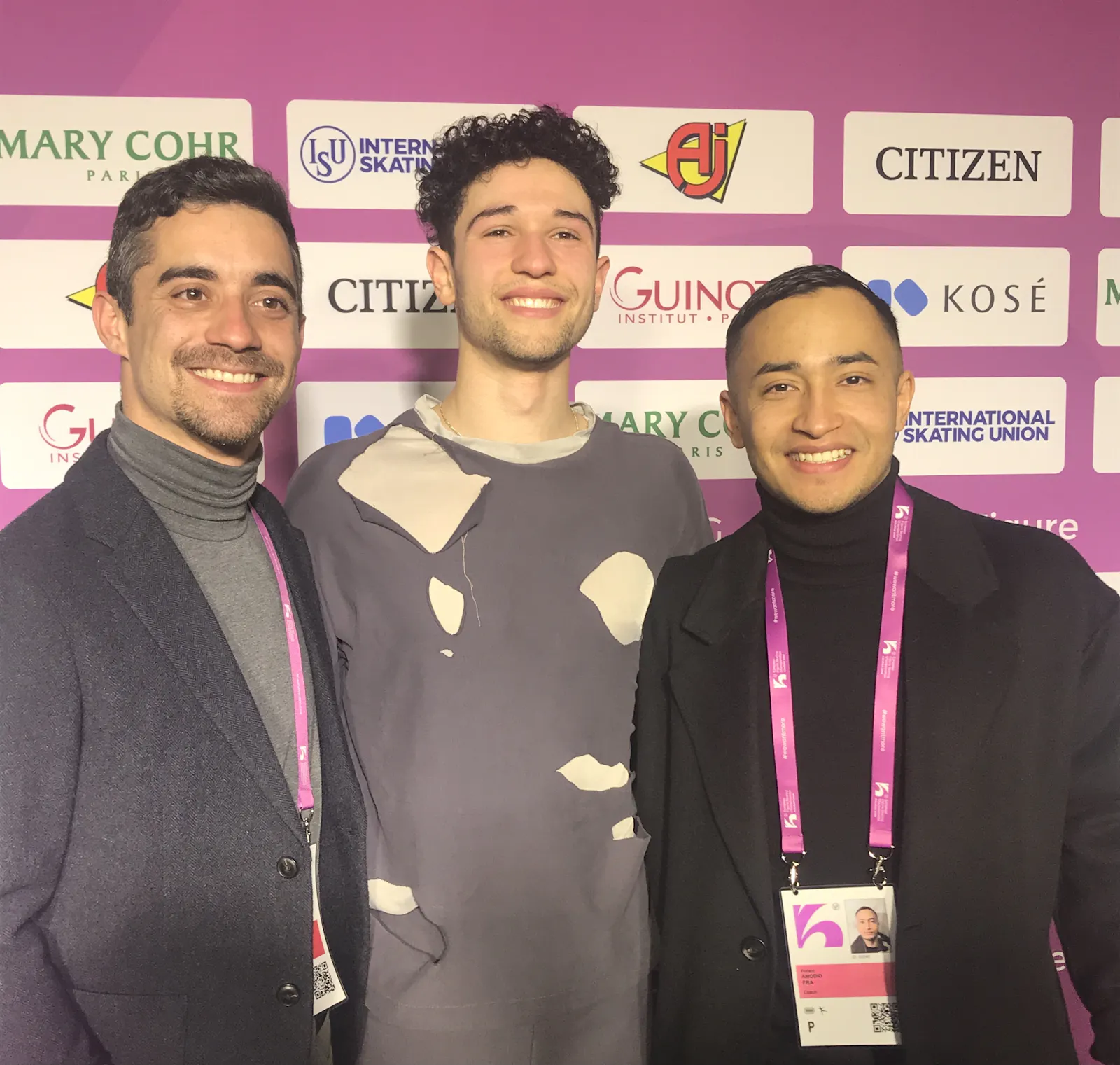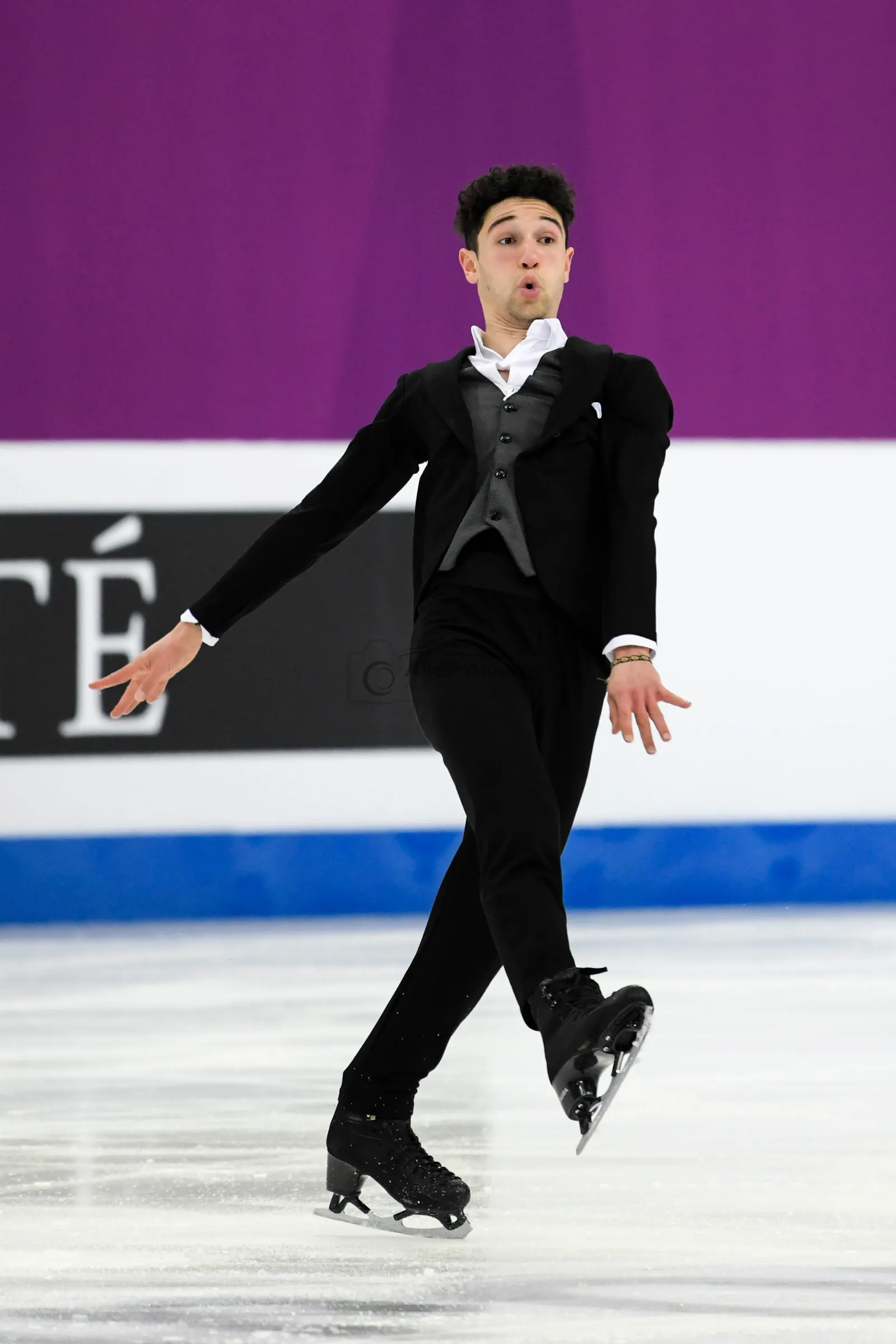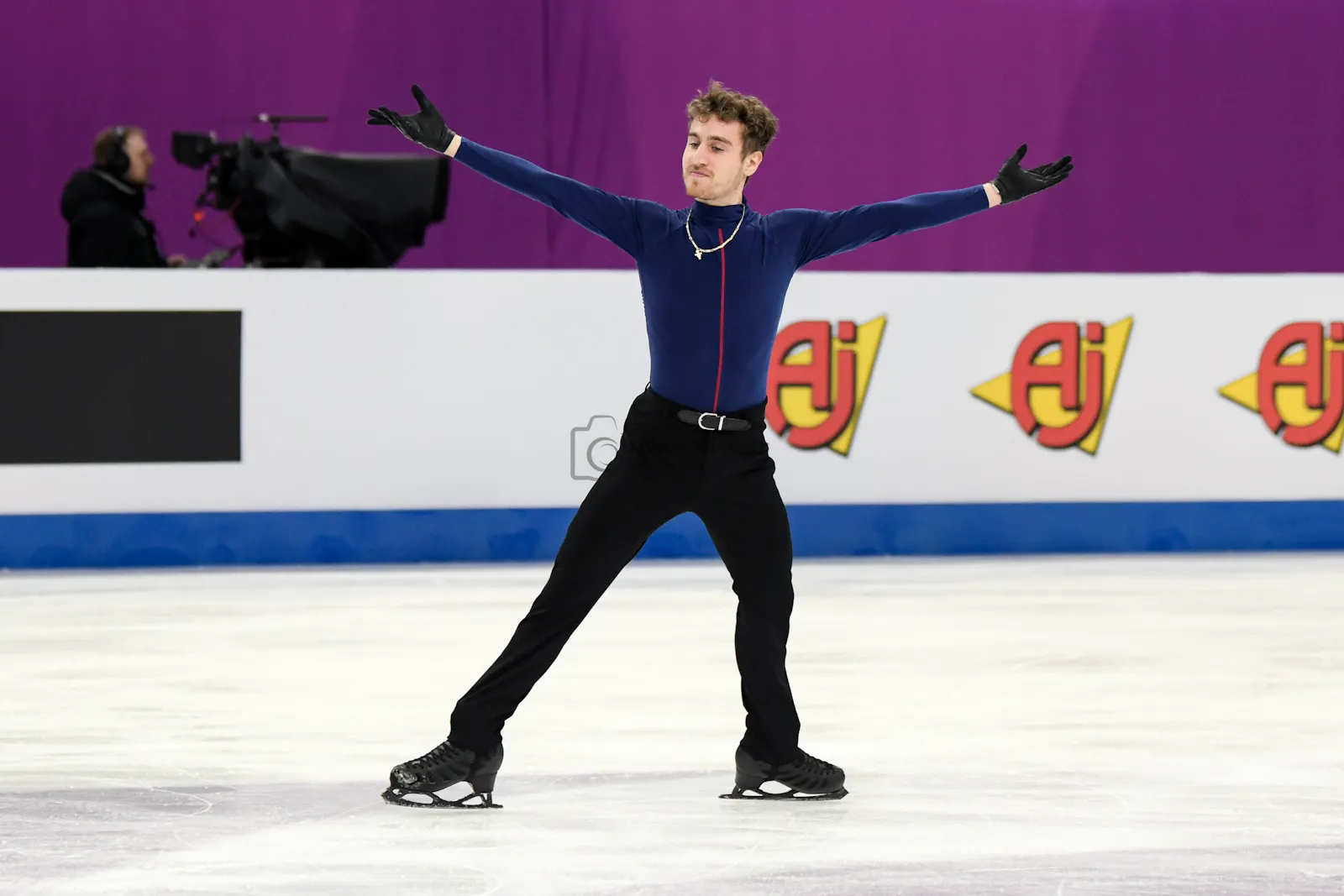Interview Javier Fernandez (Anglais)

Under the guidance of Florent Amodio, Luc Economides is having a successful 2023/2024 season, marked by appearances in two Grand Prix events, a 15th-place finish at the European Championships, and a recently announced qualification for the World Championships. At the European Championships, spectators witnessed the supportive presence of Javier Fernandez, double world champion (2015, 2016) and seven-time consecutive European champion between 2013 and 2019, alongside the rink, offering his expertise to Luc and Florent.
Solène: How did your collaboration with Florent and Luc begin?
Javier: Florent and I are good friends. We have been doing camps together for several years. This also allowed me to work with Luc. We usually spend about one and a half months together during the summer, alternating between locations such as Spain and Mexico. I also traveled to France to work with them in Vaujany.
Solène: What's Luc's biggest strength, in your opinion?
Javier: He's such a hard worker. He's the kind of skater that you only have to tell him something once, and he gets it in his brain and then works on it. That's one thing that makes him the skater he is right now.
Solène: Are you working with him on choreography only or on technical skills, too?
Javier: Everything. It depends on what Florent wants us to work on. I've worked with him on jumps, skating, and choreography, a little bit of everything.
Solène: You skated your free programs on Charlie Chaplin music a few years ago and choreographed Luc's free program on that same theme. Do you see any link between the two programs?
Javier: No, I want Luc to create his own persona on the ice. He's someone who can pull off these kinds of programs. Not everyone can do it. With this program, we can really see his talent. But even though he's doing so well, there's still a lot of room for improvement. And that's something we're actually happy about because it means he has yet to reach the peak of his abilities. He expresses himself well, but he has to continue improving, which we, as coaches, appreciate. We don't want to see our skater feeling stuck, or like they've hit their limit. Luc still has a long way to go.

Solène: Are you still skating? Is your tour Revolution on Ice still going on?
Javier: I'm still skating occasionally, performing in four or five shows yearly. I'm also busy with other projects. Regarding Revolution on Ice, we are considering creating a smaller version of the show. Instead of large venues, we aim to organize it in smaller spaces. The approach has shifted post-COVID, as we now prefer to minimize risks.
Solène: You had the project of opening a Skating Academy in Madrid. Could you tell me about it?
Javier: I was not able to pursue this project. I would have needed more support. Initiating something is challenging when the rinks already have busy schedules with skating clubs, schools, and hockey. Access is difficult because there are very few available hours, mainly early in the morning, around 5:00 or 6:00. The only alternatives are to find a different location or hope for a new rink to be built. I might be interested if someone decides to construct a new ice rink. But currently, it's not feasible. In Madrid, there are five ice rinks, which is decent. However, in Barcelona, for instance, there are none.
Solène: So, you are focusing more on offering summer camps?
Javier: Yes. We have been doing camps in France, Spain, Italy and Mexico. We're going to start working with China. We have a lot of people interested. We're also going to try it in the US and see if they like it. North American camps are usually different from European camps. European camps are more about group lessons, whereas, in North America, it's typically more about private lessons. I believe group lessons at camps to be much better for the kids and their enjoyment. It offers something different from the private lessons they're used to throughout the year in North America. It's an entirely different approach.
Solène: Are you working with Brian Orser and Tracy Wilson on these camps? I’ve also heard about Nathan Chen joining you.
Javier: I invited Brian and Tracy to join us when I started organizing larger camps in Madrid. Nathan was an addition when we were looking for a coach. He's very technical and excellent with the kids, especially in explaining things. Having skaters like him there is a fantastic experience for everyone involved. Of course, it is not only about bringing in a big name but also about providing valuable teaching.
Solène: You have been working with Matteo Rizzo, too?
Javier: Yes, I work with Matteo sometimes in the summertime when I go to Italy. I've known him since he was very young. He's a very hardworking and powerful skater. I knew he would do well in the free skate at Europeans. He's a comeback person!

Solène: Can you tell me about the documentary series about your retirement and mental health that aired in Spain?
Javier: The documentary delved into my life, exploring the places I lived, where I trained, and the people with whom I trained. Its purpose was to give viewers an insight into my daily life. But it also covered my retirement, examining my feelings about leaving the competitive world, including both the positive and negative aspects I encountered. One of retirement's most challenging aspects was finding a new routine. Without the necessity to wake up and train at specific times, I was left wondering what to do next. My schedule became unpredictable. Finding balance in my days was the trickiest part for me.
Solène: Is it going better now?
Javier: Yes! I'm swamped, so I must carefully plan and schedule my entire year. I already have next summer planned.
Solène: I heard you participated in the Spanish edition of Big Brother (“Gran Hermano”). I have to say I did not expect that…
Javier: Me neither (laughs). I'm not typically the kind of person who would do something like that. I had never even watched Big Brother before, but they approached me. After considering it, I figured it might be a good experience. I decided to give it a chance, thinking I wouldn't last long anyway. I ended up staying in the house for almost seven weeks. Being confined to the same place without any contact with the outside world, not even knowing the time, is not easy. Sometimes, we didn't have enough food, and I didn't sleep well. It was incredibly challenging with so many people in the house, constant conflicts, and people screaming at each other. At one point, I realized this could drive me crazy. That wasn’t the best experience. I wouldn't do it again, but I don't regret trying it.
Solène MATHIEU - Patinage Magazine